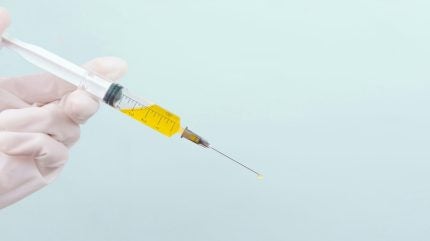
The R21/Matrix-M malaria vaccine, co-developed by the Serum Institute of India (SII) and the University of Oxford, has been launched in Côte d’Ivoire, making it the first country to administer the shot.
The new R21/Matrix-M malaria vaccine utilises Novavax’s Matrix-M adjuvant technology.

Discover B2B Marketing That Performs
Combine business intelligence and editorial excellence to reach engaged professionals across 36 leading media platforms.
Following extensive clinical trials that showcased both its tolerance and safety and found only minor side effects such as injection site pain and fever, R21/Matrix-M was awarded prequalification status by the World Health Organization (WHO) in December 2023.
This certification followed a stringent regulatory review process.
SII has already produced 25 million doses of the vaccine and aims to further increase production to 100 million doses annually.
In line with its mission to provide vaccines affordably and at scale, SII is offering R21/Matrix-M at under $4 per dose.

US Tariffs are shifting - will you react or anticipate?
Don’t let policy changes catch you off guard. Stay proactive with real-time data and expert analysis.
By GlobalDataThis production capability is pivotal for rapid and large-scale manufacturing, essential for curbing disease spread and safeguarding those vaccinated.
Côte d’Ivoire has received an initial batch of 656,600 doses and is targeting the immunisation of 250,000 children aged up to 23 months in 16 regions.
Nigeria, Ghana, Burkina Faso and the Central African Republic have also authorised the use of the R21/Matrix-M vaccine.
It stands as the second malaria vaccine available in sub-Saharan Africa after RTS,S.
Oxford University’s Jenner Institute director, Professor Adrian Hill stated: “The roll-out of the R21/Matrix-M malaria vaccine marks the start of a new era in malaria control interventions with the high efficacy vaccine now accessible at a modest price and very large scale to many countries in greatest need.”
Global health organisations such as WHO, Gavi [the Global Alliance for Vaccine and Immunization], UNICEF [the United Nations Childrens Fund] and the Global Fund are collaborating with countries to integrate the vaccine into comprehensive malaria control and prevention strategies.
With Gavi’s support, 15 African nations are set to introduce malaria vaccines. Plans are underway to immunise 6.6 million children with the malaria vaccine during 2024 and 2025.




